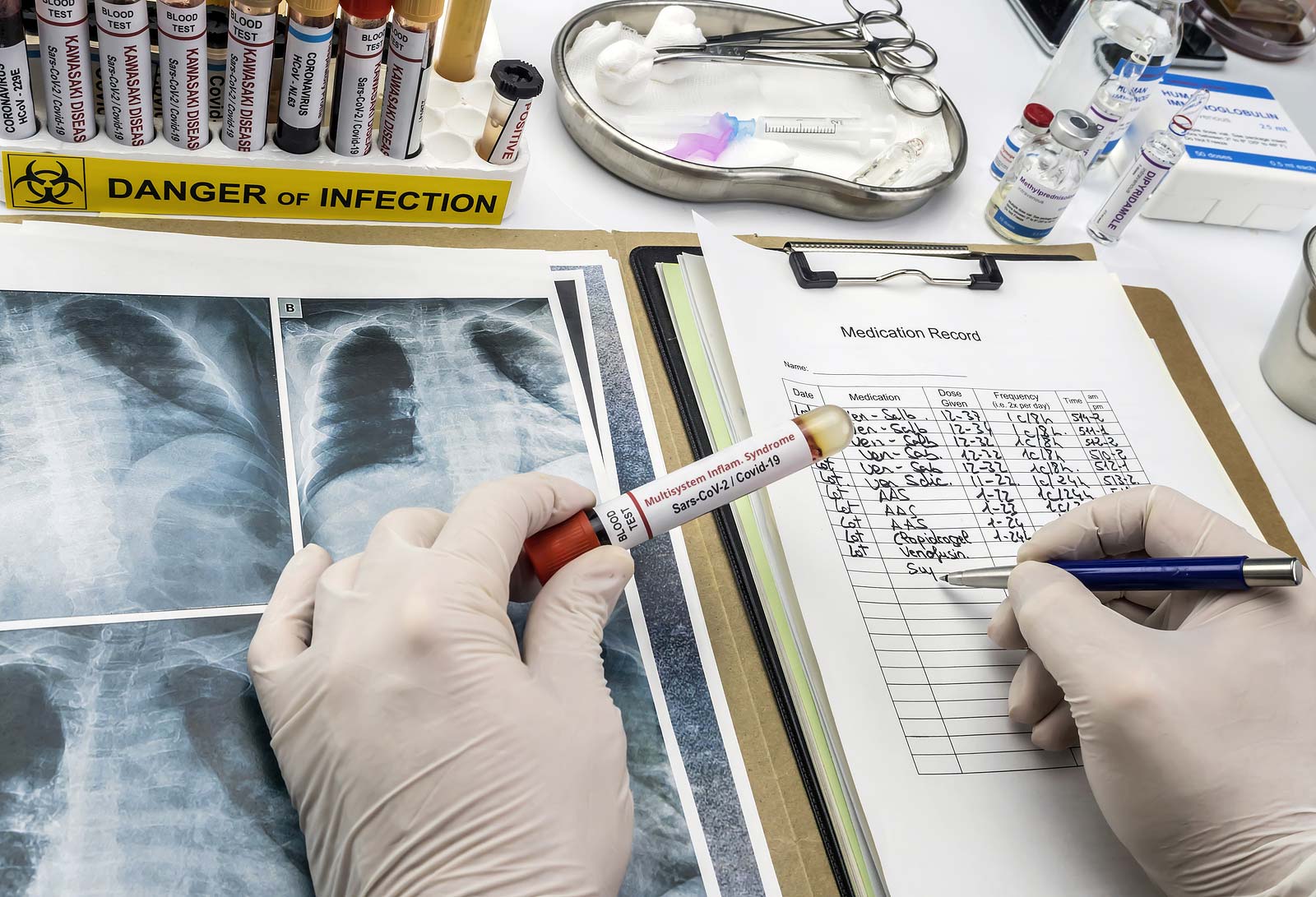
The COVID-19 pandemic had gripped almost every age group. Children affected by COVID, with time, were developing a rare but potentially life-threatening condition named Multisystem Inflammatory Syndrome, commonly called MIS-C. There were only a few cases last year, but nearly every state has reported MIS-C cases today.
The children found with MIS-C are mostly between the ages of 3 to 12 years. A few cases are reported in infants and young adults too.
What is Multisystem Inflammatory Syndrome (MISC-C)?
Multisystem Inflammatory Syndromeis a rare condition in children earlier known as pediatric inflammatory, multisystem syndrome, or PIMS. It affects various body parts that inflame, including lungs, kidneys, heart, brain, or gastrointestinal organs. (National Center for Immunization and Respiratory Diseases, 2021)
The infection symptoms, in some ways, are similar to other inflammatory conditions such as Kawasaki disease.
Causes of MIS-C in Children
The medical experts are still looking for definite causes of any infection related to the COVID-19 virus. MIS-C in children appears to be caused by a delayed immune response to the coronavirus leading to inflammation – affecting different body parts and organs. Healthcare providers also observed that antibodies found in children’s bodies post a COVID-19 virus infection may create the illness.
A few genetic factors are likely to make some children prone to MIS-C illness. The number of children cases is still under control, and medical experts indicate that children’s recovery rate is faster than adults. A proper diagnosis and treatment help them heal quickly despite developing early signs and symptoms of MIS-C. (MN Department of Health 2021)
Symptoms of MIS-C in Children
MIS-C symptoms could vary from one child to another. The symptoms start appearing between two to six weeks after the COVID-19 infection. Persistent fever, fatigue, rashes, red eyes, vomiting, loss of fluid and appetite, and abdominal pain, are common symptoms that can rapidly worsen if not medically treated in time.
An MIS-C patient may have one or many of these symptoms that include:
Cold, sweaty skin, low blood pressure, difficulty breathing, shortness of breath with exertion, light-headedness, and irregular heartbeat.
Rashes, bloodshot or swollen eyes, inflamed mucous membranes in the mouth, chapped lips, swollen or red hands and feet, and a swollen tongue.
- Diarrhea, abdominal pain, or vomiting.
- Cough along with shortness of breath.
- Continuous headache, acting unusual, neck pain, or numbness in the hands and feet.
The emergency warning signs of MIS-C include difficult breathing, constant confusion and inability to stay awake, chronic stomach pain, and discoloration of skin tone – pale, grey, or turning blue. (Mayo Clinic 2021)
When Do MIS-C Patients Need Medical Attention?
While researchers and healthcare providers are still learning more about the emerging inflammatory syndrome, it has been established that MIS-C is a historically rare condition, especially in children. It’s advised not to treat it like the common flu or ignore the signs.
If you notice one or many symptoms of MIS-C in your child, seek medical help immediately. Please consult your doctor and follow the treatment they provide.
Hospital treatment needs to be following CDC guidelines. The emergency cases can receive care in the pediatric intensive care unit. (American Academy of Pediatrics 2021)
MIS-C can cause myocarditis – the wall of the heart getting inflamed. If your child was hospitalized for treatment, it’s essential to follow up with the pediatric cardiologist two or three weeks after the discharge from the hospital. The doctor can restrict the patients with myocarditis from doing any strenuous physical activities like playing sports or exercising for some time. (American Academy of Pediatrics 2021)
Children treated with biological medicines or steroids need to follow up with a pediatric rheumatologist. (American Academy of Pediatrics 2021)
Things to Keep in Mind in a COVID Era
We live in times when no infection or illness can be taken casually, even more so when related to children. If you are in doubt, take medical help quickly. For emergency, dial 911 right away.
One of the best ways to prevent MIS-C in children is to avoid exposure to coronavirus infection. It simply means that you and your child must follow the public health guidelines, like maintaining proper hygiene and sanitization at home, washing hands often, and wearing masks in public places. Most importantly, get the COVID-19 vaccine when age appropriate vaccines become available.
Works Cited
National Center for Immunization and Respiratory Diseases, Staff. “For Parents: Multisystem Inflammatory Syndrome in Children (Mis-C) Associated with Covid-19.” Centers for Disease Control and Prevention, Centers for Disease Control and Prevention, 20 Sept. 2021, www.cdc.gov/mis/mis-c.html.
MN Department of Health, MDH. “Multisystem Inflammatory Syndrome in Children (Mis-C).” Minnesota Dept. of Health, 26 July 2021, www.health.state.mn.us/diseases/misc/index.html.
Mayo Clinic, Staff. “Multisystem Inflammatory Syndrome in Children (Mis-C) and Covid-19.” Mayo Clinic, Mayo Foundation for Medical Education and Research, 18 May 2021, www.mayoclinic.org/diseases-conditions/mis-c-in-kids-covid-19/symptoms-causes/syc-20502550.
American Academy of Pediatrics, Staff. “Covid-19 and Multi-System Inflammatory Syndrome in Children (Mis-C).” HealthyChildren.org, 12 Feb. 2021, www.healthychildren.org/English/health-issues/conditions/COVID-19/Pages/covid_inflammatory_condition.aspx.





